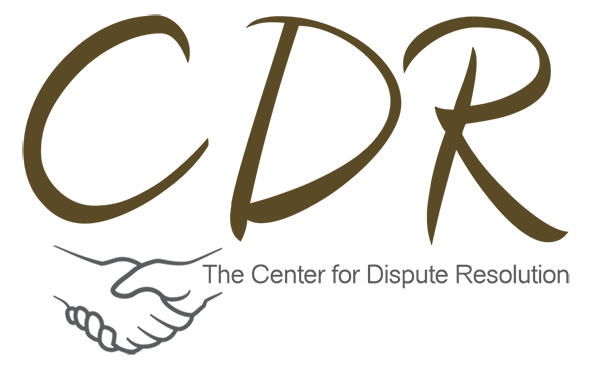
The Vital Importance of Regular Conflict Resolution Training for Hospital Staff
Conflict is an inherent part of human interactions, and nowhere is this truer than in healthcare settings, where high-stress situations and life-or-death decisions are the norm. Hospitals and healthcare facilities are dynamic environments where a multitude of professionals with diverse backgrounds and expertise come together to provide patient care. Given this complexity, it is crucial for hospitals to prioritize conflict resolution training for their staff. But how often should such training occur, and why is it essential? This article delves into these questions and underscores the significance of regular conflict resolution training in healthcare settings.
The Nature of Conflict in Hospitals
Conflict in hospitals can arise from various sources, including disagreements between healthcare providers, disputes with patients or their families, differences in treatment plans, ethical dilemmas, resource allocation issues, and more. These conflicts, if not managed effectively, can have dire consequences, affecting patient outcomes, staff morale, and the overall quality of care. Therefore, hospitals must be proactive in addressing and mitigating conflicts.
The Importance of Conflict Resolution Training
- Enhancing Patient Safety:
Regular conflict resolution training for hospital staff is instrumental in improving patient safety. Misunderstandings and unresolved conflicts among healthcare professionals can lead to medical errors and compromised patient care. Training equips staff with the tools to communicate effectively, collaborate efficiently, and prioritize patient well-being even in the face of disagreements.
- Strengthening Team Dynamics:
In a hospital, healthcare providers from various disciplines must work as a cohesive team to provide the best care possible. Conflict resolution training fosters better team dynamics by teaching professionals how to navigate disagreements constructively. This, in turn, enhances teamwork, reduces workplace tension, and promotes a more harmonious work environment.
- Mitigating Stress and Burnout:
Healthcare professionals often face high levels of stress due to the nature of their work. Unresolved conflicts add to this stress and can contribute to burnout. Conflict resolution training helps staff manage stress by providing them with strategies to address and resolve conflicts, reducing the emotional toll of these situations.
- Promoting Ethical Decision-Making:
Ethical dilemmas are not uncommon in healthcare, and they can lead to profound conflicts. Conflict resolution training equips healthcare professionals with the ethical reasoning and communication skills needed to navigate these challenges while preserving patient trust and ethical standards.
- Improving Patient Experience:
Effective conflict resolution positively impacts the patient experience. Patients and their families are more likely to feel satisfied with their care when they perceive a harmonious and empathetic healthcare team. Conflict resolution training helps staff manage patient interactions with empathy and professionalism, ultimately enhancing patient satisfaction.
How Often Should Conflict Resolution Training Occur?
The frequency of conflict resolution training in hospitals should be carefully considered. While it is crucial to provide initial training to all staff members, ongoing and periodic training is equally vital. Here are some key considerations for determining the frequency of training:
- Annual or Biannual Workshops: Hospitals should consider conducting comprehensive conflict resolution workshops annually or biannually for all staff members. These workshops can serve as a refresher and update on best practices in conflict resolution.
- Department-Specific Training: Different departments within a hospital may have unique challenges and conflicts. Offering department-specific training sessions, in addition to general training, can help address specific issues that may arise.
- New Employee Orientation: Conflict resolution training should be integrated into the orientation process for new hires. This ensures that all staff members, including those who join the hospital at various times, receive the essential training.
- Continuous Learning: Encourage a culture of continuous learning by providing access to online resources, webinars, and peer support groups focused on conflict resolution. Staff members can engage in these resources as needed throughout the year.
- Feedback and Evaluation: Regularly assess the effectiveness of conflict resolution training through feedback from staff members and monitoring conflict resolution outcomes. Adjust the training frequency and content based on this feedback.
- OSHA Recommendations: New and reassigned workers should receive an initial orientation before being assigned their job duties. All workers should receive required training annually. In high-risk settings and institutions, refresher training may be needed more frequently, perhaps monthly or quarterly, to effectively reach and inform all workers.
Conclusion
Conflict resolution training is not a one-time event; it is an ongoing process that is essential for the smooth operation of hospitals and the delivery of high-quality patient care. By providing regular conflict resolution training to hospital staff, healthcare facilities can enhance patient safety, strengthen team dynamics, reduce stress and burnout, promote ethical decision-making, and improve the overall patient experience. The frequency of such training should be tailored to the specific needs of the hospital, with a focus on continuous improvement and learning. Ultimately, investing in conflict resolution training is an investment in the well-being of both patients and healthcare professionals.
✅ Resolve disputes effortlessly. ✅ Build stronger relationships. ✅ Subscribe FREE now!
Don't miss out! Join us today. 🚀


Comments are closed